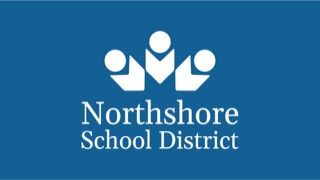
At the beginning of her Critical Media Literacy class, Dr. Min Tang, assistant teaching professor in the School of Interdisciplinary Arts & Sciences, asks her students to think about how they can use media to empower themselves and disenfranchised communities.
Tang, who has been teaching the course since 2017, has spent a lot of time thinking about this question herself. She found one answer partnering with the Bothell-based Northshore School District in 2019.
At the time, Northshore was launching pilot programs for both an ethnic studies curriculum and a students of color conference. Tang involved the UW Bothell students in her class by having them propose and create a workshop that highlighted identity politics in media, focusing on how systems of oppression operate through media representation.
“I encourage my students to think about how power structures in a society shape the media systems and processes,” Tang said. “I want them to understand the kind of power media has in shaping our social discourses, perceptions and opinions.”
Developing advocacy

Tang said that the concept of identity has become increasingly important as the partnership has evolved. “Media discourses and representations are so closely connected to identity politics,” she said.
Students in the course are encouraged to think about the media’s representations of gender, race and ethnic minorities, paying close attention to the framing of “othering” and “us versus them.”
The workshop projects were designed to be a mutual learning process between the UW Bothell students who presented them and the Northshore School District students who attended. “Media literacy focuses a lot on creation and participation,” Tang said. “I want my students to learn how to actually engage in advocacy and activism. Doing a workshop is one way to participate in something influential within the community setting.”
Brianna Hinds (IAS ’20) took the class in autumn 2019 because she was eager to learn how to apply media skills in a different way. Her presentation was on stereotypes in video games, including the hyper sexualization of women and the non-representation of the LGBTQ community.
“A lot of these issues get swept under the rug especially with big media companies that have the power to change and shift the way society interacts with media,” Hinds said. “These stereotypes are damaging.”
Raising awareness
The workshops created in autumn 2019 were to be presented at the Northshore School District’s first students of color conference. Originally scheduled during spring break in 2020 on UW Bothell’s campus, conference plans had to change due to the coronavirus pandemic.
The prepared presentations covered a range of topics including the intersection of race and gender in video games as well as leading male characters of Disney movies and the issue of whitewashing in Hollywood.
Northshore hopes that UW Bothell students can raise awareness among young people through media education — and become role models for the high school students.
“The community partners helped greatly by providing information on what to be careful with in terms of language and what might be more relatable to audiences that the students will present to,” Tang said.
Expanding education
In December 2020, students in the autumn class presented their proposed workshops to the Northshore School District virtually. Their audience included five teachers, several from the Racial and Educational Justice team. Topics the students covered included the role of sports and athletes in the Black Lives Matter movement, Hollywood representation of Asians, how the Asian community is represented on social media and the (self-) representation of women on Instagram.
Third-year student Mathew Defante, a Media and Communication Studies major, did his project on media and the dehumanization of people with disabilities. “They are human, too, and deserve respect,” said Defante. “We want to end the culture of bullying people with disabilities and start by educating students at Northshore on how they can become better allies.”
Tang’s students are eager for the day they can present their knowledge directly to the Northshore students, but when or how that will happen is still unknown due to the pandemic.
Tang said her students also want to expand the educational workshops to their home school districts, wanting their knowledge to reach more people. “I thoroughly enjoyed taking Min Tang’s class. It really helped me apply my critical thinking skills,” said Hinds. “I wish I had access to this kind of information when I was in high school.”



